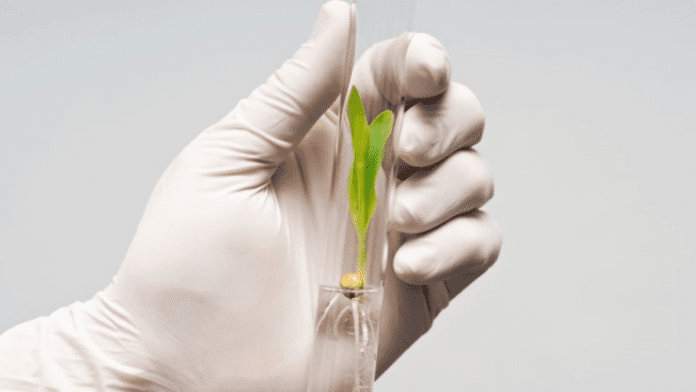News in Brief:
– French health agency challenges EU proposal on gene-edited plants, citing risks and societal implications.
– Accusations of government interference arise as report delay sparks controversy, while local farmers face uncertainty over potential impacts.
A recent report by the French National Agency for Food, Environmental and Occupational Health Safety (Anses) challenges the European Commission’s proposal to ease regulations on gene-edited plants.
The study recommends a global monitoring system for plants modified with new genomic techniques (NGTs) and highlights several major issues associated with the proposed changes.
EU’s proposal and Anses’ concerns
In July 2023, the European Commission suggested relaxing rules on advanced biotechnologies, categorising NGTs into two groups.
Anses, however, questioned the distinction between the two categories in December 2023. The European Parliament approved the text on NGTs in February, sparking debates in the Council, particularly on patents and traceability.
Controversially, the French government is accused of delaying the release of Anses’ report to influence European negotiations. Critics argue that France should oppose deregulation, emphasising the importance of Anses’ insights.
Environmental and health risks of gene-edited plants
Anses’ report underscores potential risks associated with genome editing, including concerns about unexpected changes in plant composition affecting nutrition, allergies, and toxicity. Environmental risks include gene flow to wild or cultivated populations, impacting interactions with animals.
As the debate unfolds, local farmers in France are left uncertain about the potential impacts on their crops and livelihoods. The proposed changes in regulations could reshape the landscape of agriculture, raising questions about sustainability and safety.
The NGO POLLINIS urges the government to consider Anses’ recommendations and reject the draft regulations during ongoing negotiations. MEPs, such as Christophe Clergeau, support Anses’ call for a thorough assessment of health and environmental risks, questioning the alignment of the draft law with the interests of local farmers.



